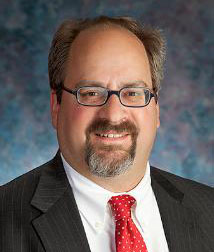Bankruptcy trustees often find that by the time a case has commenced, potential fraudulent transfers are already so far in the past that they are beyond the reach of the two-year look-back period under § 548 of the Bankruptcy Code.
Unsecured Trade Creditors Committee
Committees
In In re Clark,[1] the Bankruptcy Appellate Panel for the Ninth Circuit affirmed a bankruptcy court’s determination to substantively consolidate an individual’s chapter 7 bankruptcy estate with the assets of a non-debtor limited liability company ranch and a trust that the debtor controlled.
The Unsecured Trade Creditors Committee (UTC) was hard at work once again in 2016.
Competition among law firms to be selected as counsel to an Official Committee of Unsecured Creditor is notoriously stiff. The financial rewards are substantial and work begets more work. Every new engagement is another line in the pitch book, and one less for the competition.
By making official committees of creditors mandatory, Congress recognized that committees can be vital to the success of a chapter 11 case. That is why the United States Trustee Program (“USTP”) expends great effort to solicit and to appoint a “representative” group and to provide its members with a charge that explains their important fiduciary duties to act on behalf of their constituency.
In chapter 11 cases, the U.S. Trustee’s power is prominently showcased throughout the process of appointing official creditors (and equity) committees. The Code instructs that the U.S. Trustee “shall appoint a committee of creditors holding unsecured claims and may appoint additional committees ...
[1]Picture the scene: A vendor has just received word that its customer has filed chapter 11. The vendor put the customer on a cash-before-delivery basis and demanded assurances of performance. The vendor was successful in reducing the accounts receivable owed and avoiding preference liability in doing so.
Gas prices have plummeted more than 70 percent in the last two years.[1] This is financially devastating for the oil and gas industry. To cover the “souring energy loans” secured by oil and gas properties and proceeds, U.S. banks have set aside $2.5 billion.
Recently, in Zachary v. Cal. Bank & Trust,[1] the U.S. Court of Appeals for the Ninth Circuit agreed with the Fourth, Fifth, Sixth and Tenth Circuits in holding that the absolute priority rule continues to apply to individual chapter 11 reorganizations, notwithstanding the 2005 BAPCPA amendments to the Bankruptcy Code.
Co-Chair
Bernstein Shur
Portland, ME
(207) 228-7379
Co-Chair
KEWA Financial Inc.
Lexington, KY
(859) 233-0352
Communications Manager
Davis Wright Tremaine LLP
Seattle, WA
(206) 622-3150
Education Director
Lowenstein Sandler LLP
New York, NY
(646) 414-6886
Newsletter Editor
Cleary Gottlieb
New York, NY
(212) 225-3341
Newsletter Editor
Frost Brown Todd LLP
Cincinnati, OH
(513) 651-6842
Special Projects Leader
B. Riley Advisory Services
Los Angeles, CA
(213) 409-6237

















